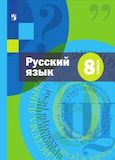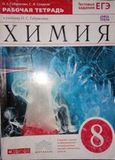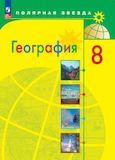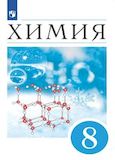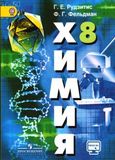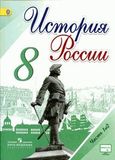Стр.19 Unit 1 Интересные жизни ГДЗ Комарова Ларионова 8 класс
Грамматика
Present Simple и Present Continuous
Present Simple
Мы используем Present Simple для распорядка дня и привычек.
They do voluntary work every week.
(Они делают добровольную работу каждую неделю.)
В третьем лице единственного числа (he / she / it) мы добавляем -s к глаголу.
It takes at least six months to do a Bronze Award.
(Для получения бронзовой награды требуется не менее шести месяцев.)
В отрицательных предложениях и вопросах мы используем вспомогательный глагол do / does.
She doesn't go on an expedition every year. Do you play football on Fridays?
(Она не ездит в экспедиции каждый год. Ты играешь в футбол по пятницам?)
Present Continuous
Мы используем Present Continuous чтобы описать что случилось в данный момент.
Thousands of people are doing the D of E Awards now.
(Тысячи людей получают награды герцога Эдинбургского.)
В утвердительных и отрицательных предложениях порядок слов такой: subject (подлежащее) + be (not) + verb (глагол) + -ing.
He is watching tv. (Он смотрит телевизор.)
В вопросительных предложениях порядок слов такой: be + subject (подлежащее) + verb (глагол)+ -ing.
Are you doing the D of E Awards?
(Вы получаете награды герцога Эдинбургского?)
В коротких ответах мы не повторяем глагол с окончанием -ing.
Yes, I am. / Yes, I am doing.
Выражения времени
Мы используем always (всегда), every day (каждый день), twice a week (дважды в неделю) ит.д. с Present Simple.
I always help at training.
They play computer games every day.
My brother does voluntary work twice a week.
Мы используем at the moment (в данный момент), now (сейчас), today (сегодня) и т.д. с Present Continuous
We're waiting for our teacher at the moment. (Мы ждем нашего учителя в данный момент.)
It isn't raining now. (Сейчас не идет дождь.)
You're wearing new jeans today. (На тебе сегодня новые джинсы.)
Наречия частоты
never (никогда)
sometimes (иногда)
often (часто)
usually (как правило)
always (всегда)
Мы используем наречие частоты, чтобы сказать, как часто мы что-то делаем.
Наречия частоты обычно идут перед глаголом.
He often studies in the library on Saturdays. (Он часто учится в библиотеке по субботам.)
Наречия частоты идут после глагола be.
I am never late for school. (Я никогда не опаздываю в школу.)
be: Past Simple
Утвердительные предложения
I / He / She / It was
We / You / They were
famous.
writers.
Отрицательные предложения
I / He / She / It wasn’t (was not)
We / You / They weren’t (were not)
Spanish.
French.
Вопросы
Was I / he / she / it
Were we / you / they
English?
scientists?
Короткие ответы
Yes, I / he / she / it was. / No, I / he / she / it wasn’t.
Yes, we / you / they were. / No, we / you / they weren’t.
there was / there were
Утвердительные предложения
There was an African winner. (Был африканский победитель.)
There were other winners. (Были и другие победители.)
Отрицательные предложения
There wasn’t an African winner. (Африканского победителя не было.)
There weren’t other winners. (Других победителей не было.)
Вопросы
Was there an African winner? (Был ли африканский победитель?)
Were there other winners? (Были ли другие победители?)
Короткие ответы
Yes, there was. / No, there wasn’t.
Yes, there were. / No, there weren’t.
Приведем выдержку из задания из учебника Комарова, Ларионова 8 класс, Русское слово:
Grammar
Present simple and present continuous
present simple
We use the present simple for routines and habits.
They do voluntary work every week.
In the third person singular (he / she / it) we add -s to the verb.
It takes at least six months to do a Bronze Award.
In the negative and questions we use the auxiliary do / does.
She doesn't go on an expedition every year. Do you play football on Fridays?
present continuous
We use the present continuous to describe what is happening at the moment.
Thousands of people are doing the D of E Awards now.
In the affirmative and negative, the order is subject + be (not) + verb + -ing.
He is watching tv.
In questions, the order is be + subject + verb + -ing.
Are you doing the D of E Awards?
In short answers, we don’t repeat the verb + -ing.
Yes, I am. / Yes, I am doing.
Time expressions
We use always, every day, twice a week, etc with the present simple.
I always help at training.
They play computer games every day.
My brother does voluntary work twice a week.
We use at the moment, now, today, etc with the present continuous, we're waiting for our teacher at the moment.
It isn't raining now.
You're wearing new jeans today.
Adverbs of frequency
never
sometimes
often
usually
always
We use adverbs of frequency to say how often we do something.
Adverbs of frequency usually go before the verb.
He often studies in the library on Saturdays.
Adverbs of frequency go after be.
I am never late for school.
be: past simple
affirmative
I / He / She / It was
We / You / They were
famous.
writers.
negative
I / He / She / It wasn’t (was not)
We / You / They weren’t (were not)
Spanish.
French.
questions
Was I / he / she / it
Were we / you / they
English?
scientists?
short answers
Yes, I / he / she / it was. / No, I / he / she / it wasn’t.
Yes, we / you / they were. / No, we / you / they weren’t.
there was / there were
affirmative
There was an African winner.
There were other winners.
negative
There wasn’t an African winner.
There weren’t other winners.
questions
Was there an African winner?
Were there other winners?
short answers
Yes, there was. / No, there wasn’t.
Yes, there were. / No, there weren’t.
Популярные решебники 8 класс Все решебники
*размещая тексты в комментариях ниже, вы автоматически соглашаетесь с пользовательским соглашением
